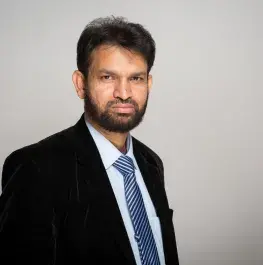Dr. Muhammad Shahid Habib
Country: Lahore Pakistan
Year: 2017
Languages: English, Arabic, Farsi, Urdu
Organizations: Lahore Garrison University
Expertise: Comparative Religions
Focus area: Academic
Religious affiliation: Islam
Dr. Muhammad Shahid Habib is an assistant professor of comparative religions and is serving as the Executive Director of the International Interreligious Dialogue and Research Centre and the Editor of the Research Journal of ‘ABHATH’ for Islamic Studies and Social Sciences at Lahore Garrison University, Pakistan. He is also associate editor of the International Journal of Religion and Spirituality in Society, published in London. He completed a bachelor’s degree, master’s degree, and a PhD (in comparative religions with a specialization in the Christian theology of interfaith dialogue) from the International Islamic University in Islamabad, Pakistan. He also holds a master’s degree in Arabic from Punjab University Lahore, and Sahadatul Aalamiya (master in Islamic sciences) from the renowned Islamic seminary Darrul Uloom Muhammadia Ghusia in Bhera Sharifa Pakistan. He has authored research articles in national and international publications and published a book on interreligious dialogue and Islamic studies. His book 'Religious Dialogue between Muslims and Christians in the Pakistani Context' was published by Lambert Publishing Germany in 2014.
Dr. Habib teaches at various universities in Pakistan and also presents his research at national and international conferences and he has organized conferences and seminars in Pakistani universities. He speaks Arabic, English, Persian and Urdu. He seeks to promote peace and harmony at the national and international level through interreligious dialogue and to serve humanity through minimising armed conflicts among nations. He delivers Khutbat (religious sermons) at mosques and religious platforms. He believes in the values of tolerance, pluralism and diversity.
